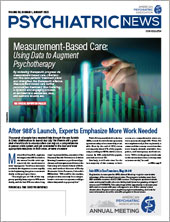Recently I learned about the case of a U.S. psychiatrist in which a 55-year-old man was hospitalized in a psychiatric institution and suddenly collapsed and later died at an acute care hospital. He had fallen into a diabetic ketoacidosis coma and died from complications. He had consistently refused to have a blood test since his admission three years earlier. He was hospitalized involuntarily via civil commitment because his severe paranoid delusions placed him at risk of causing harm to others. He refused antipsychotic medications, but later received them involuntarily by order of the probate court as he was deemed to lack the capacity to give informed consent to treatment. The probate court granted authority for decisions regarding medications to a conservator of person, who promptly approved the treatment team’s request.
The patient’s continued refusal to take antipsychotic medications orally initially resulted in frequent injections. A week later, he grudgingly agreed to take oral medications but declared he would not take them absent the involuntary medication order. Additionally, he refused to have blood drawn for laboratory investigations. He also refused EKG, body mass index (BMI), and involuntary movement monitoring. The treatment team determined that he had not regained capacity for informed consent despite years of treatment and continued involuntary treatment. His family and legal advocates sued the clinicians for negligence after they became aware of the facts.
This scenario is not uncommon in state/public psychiatric institutions across the country, where the most ill patients, some with refractory illness, reside. Many are treated involuntarily by court order initially until they regain capacity for informed consent after which the treatment team abides by their decisions regarding treatment. In contrast, others continue to require forcible treatment. Unfortunately, psychotropic medications have potentially serious and even life-threatening side effects, which must be monitored closely through blood tests, EKGs, the Abnormal Involuntary Movement Scale, and weight checks.
Problems arise when patients on involuntary psychotropic medication refuse a blood draw for tests. In my experience, while staff members do enforce involuntary medication orders, sometimes through physical or even mechanical restraints, they are loathe to force blood draws on refusing patients. As such, a patient on involuntary psychotropic medication may go years without blood tests. This is a potentially dangerous situation as exemplified by the case described earlier. Research indicates that diabetic ketoacidosis may result within six months of antipsychotic treatment.
Manufacturers of antipsychotic medications recommend frequent blood tests for safety. These recommendations have also been supported by research. In general, blood tests for glucose, lipids, and complete blood count should be done at initiation of treatment, at 12 weeks, six months, and at least annually thereafter, with adjustments made as clinically indicated. Even in situations where blood draws are challenging, blood tests should be done at least once a year.
Staff members’ reluctance to enforce blood draws are influenced by several concerns. While forcible medication is considered necessary to decrease the patient’s suffering, blood draws are not seen as immediately or necessarily beneficial. Thus, it seems cruel and inhumane to execute the force necessary to draw blood from a refusing patient and irresponsible to cause injuries while subduing the patient. Additionally, staff worry that they do not have legal authority to enforce blood draws.
The reality, however, is different. Since a blood draw is a medical and not a psychiatric intervention, the patient’s conservator of person has legal authority to consent to it. Doubts or concerns regarding this should be addressed with the probate court judge. To avoid confusion, I recommend including the need for blood tests (involuntary, if necessary) in the same probate court application for involuntary psychotropic medication treatment.
Antipsychotic medications are crucial in the treatment of patients with psychosis and have led to remarkable recovery from severe and persistent illness. However, their potential risk of serious and life-threatening side effects mandates caution in their use and close monitoring for safety. Most of their dangerous side effects can be detected early with blood tests and managed accordingly. Therefore, administering them involuntarily to patients without doing blood tests is problematic as they can lead to severe morbidity or mortality as depicted by the case example. ■

